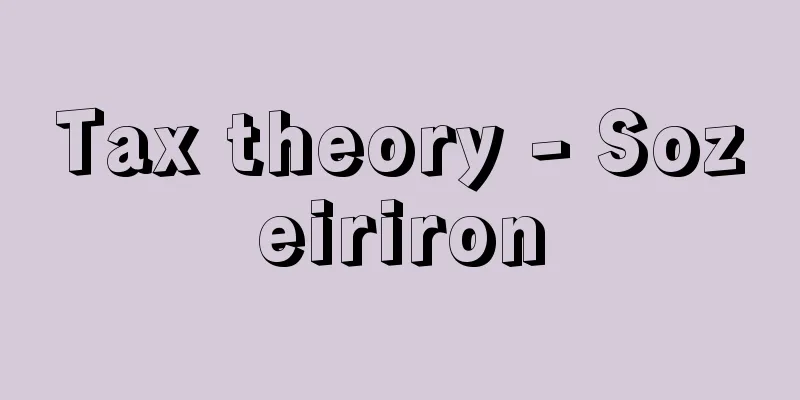Tax theory - Sozeiriron

|
[Types of tax theory] Tax theory consists of two parts: the empirical (positive) domain and the normative domain. The former analyzes how changes in the tax system affect the decision-making of economic agents in the private sector and economic variables in society as a whole through market mechanisms. The latter, on the other hand, seeks to clarify what requirements a tax system must meet to achieve the most desirable state for the entire economy and society. Source: Heibonsha World Encyclopedia, 2nd Edition Information |
|
【租税理論の類型】 租税理論は,実証的(ポジティブ)な領域と規範的(ノーマティブ)な領域の二つの部分によって構成されている。前者は,市場機構を通して,税制の変更が民間部門の経済主体の意思決定や社会全体の経済変量に対してどのような影響をもたらすかを分析するものである。これに対して後者は,租税体系がいかなる要件を備えたときに経済社会全体にとって最も望ましい状態が達成できるかを解明しようとするものである。 出典 株式会社平凡社世界大百科事典 第2版について 情報 |
Recommend
Triosteum pinnatifidum
…[Mr. Makoto Fukuoka]. … *Some of the terminology...
Ootahime Shrine - Ootahime Shrine
...It enshrines Hondawake no Mikoto (Emperor Ojin...
wertrational
…The ultimate support of ethos is found within th...
Tokugawa Iemochi
The 14th Shogun of the Edo Shogunate. The eldest ...
British American Tobacco Co., China
…Its official name is the British American Tobacc...
Pedionite (English spelling) Pedionite, lava sheet
A lava flow whose width is about the same as its l...
Square kiln
…Batch kilns are also divided into single kilns a...
Stone Blade Arrowhead Culture
A culture characterized by stone blade arrowheads,...
Yoshimasa Ashikaga
The 8th Shogun of the Muromachi Shogunate. Son of...
Toyotomi Hidenaga
1541-91 (Tenbun 10-Tensho 19) A military commander...
New Emperor - Shinno
"Shin-oh" Multiphony Renjo 》 1. The pers...
Preservative - Boufzai
A substance that inhibits the growth of microorga...
Waiting to eat Anglerfish - Anglerfish Town Dinner
…Their mouths are very large, with protruding low...
University of Ibadan
It is the oldest university in Nigeria, originati...
"Ooka's Political Discussion: The Story of Suzuki Genjuro"
...Tange Sazen, the one-eyed, one-armed superhuma...









